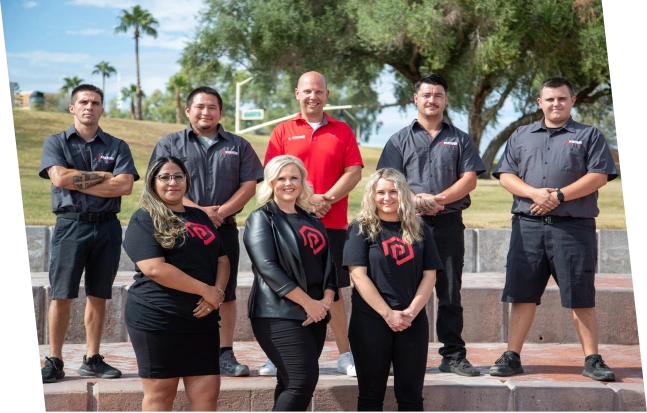However, they can also become a significant energy sink, impacting both the environment and your wallet. To tackle this issue, we’ve compiled expert advice on optimizing the energy efficiency of your AC unit. This not only keeps your living space cool but also minimizes the strain on your wallet. From regular AC maintenance to understanding your HVAC system, our tips will help you make the most of your air conditioning system and prevent AC repair. Learn how to prevent clogs, when to call in a technician, and more to maximize your AC’s efficiency.
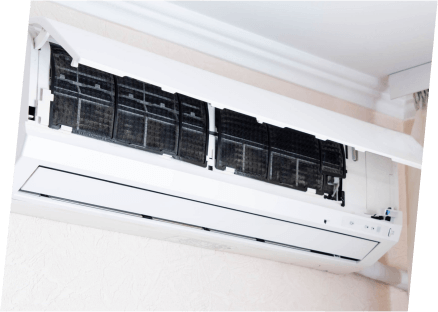
Change Your Air Filter Regularly
One of the simplest yet most effective steps is changing your air filter regularly. A dirty air filter can impede airflow, forcing your AC unit to work harder and resulting in increased energy consumption and higher utility bills. To keep your air conditioner operating at its best, replace the air filter every 1-3 months, adjusting the frequency based on usage and the dustiness of your home. This straightforward maintenance tip can significantly reduce your air conditioner’s energy consumption, allowing you to stay cool and save on energy costs.
This practice aligns with recommendations from the Department of Energy, which suggests that replacing a dirty filter can lower your air conditioner’s energy consumption by up to 5%. It’s a small effort with big rewards in both keeping your home cooler and your energy use more efficient.
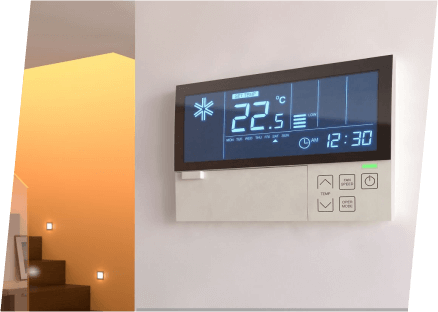
Set Your Thermostat to a Comfortable Temperature
Efficiently managing your home’s cooling system can make a substantial difference in both comfort and energy costs. A significant aspect of this is setting your thermostat to a comfortable yet energy-conscious temperature. Optimal control over your thermostat can lead to substantial savings. A recommended starting point is around 78 degrees Fahrenheit, allowing you to enjoy cool air without overworking your AC. Make minor adjustments as needed to strike the right balance. It’s worth noting that the higher you set your thermostat, the less energy your AC unit will consume. This small adjustment can significantly impact your energy consumption and help keep your home comfortable throughout the summer season.
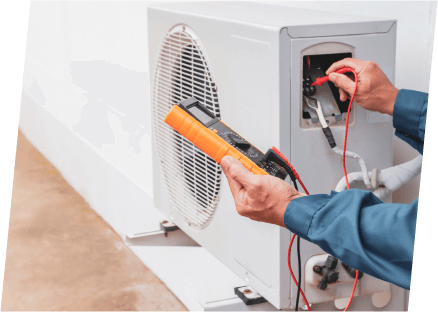
Use a Programmable Thermostat
A programmable thermostat offers a simple yet effective way to manage your cooling system efficiently. With this smart device, you can schedule your AC unit to turn on and off at specific times of the day, aligning with your daily routine. By preventing your AC from running unnecessarily when you’re not at home or during sleeping hours, you’ll significantly reduce your energy consumption. This straightforward adjustment not only adds convenience but also contributes to substantial energy savings, ensuring you have a clean and comfortable home without incurring excessive costs.
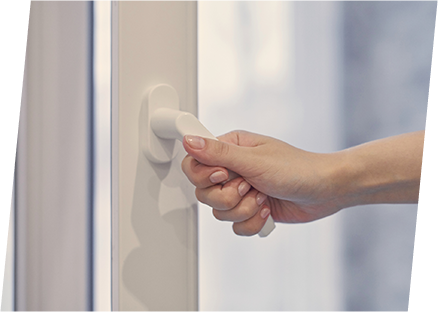
Keep Your Doors and Windows Closed
One of the fundamental principles of maximizing energy efficiency for your AC unit is to maintain a well-sealed home environment. When you keep your doors and windows closed, your AC unit doesn’t have to work as hard to cool your living space. This practice prevents cooled air from escaping and hot air from infiltrating, ensuring that your AC operates at peak efficiency. Additionally, closing curtains and blinds during the day can help keep out sunlight and heat, reducing the load on your cooling system.
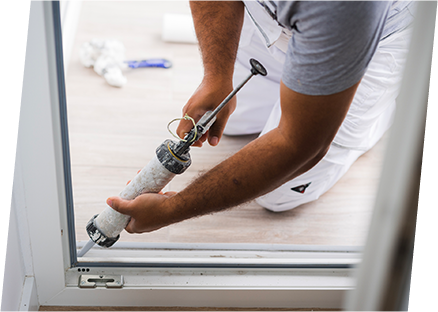
Seal Any Air Leaks Around Doors and Windows
Efficiency in your AC unit’s operation hinges on creating an airtight home environment. Air leaks around doors and windows can be a significant culprit in letting out precious cold air and allowing hot air to intrude. This forces your AC to work harder and consume more energy. To counter this, utilize tools like caulk or weatherstripping to seal any air leaks. By ensuring your living space is well-insulated, you not only prevent cooled air from escaping but also shield your home from the summer heat. This simple step not only boosts your AC’s effectiveness but can also help you save substantially on energy costs, keeping your home comfortably cool.

Maintain Your AC Unit Properly
Ensuring your unit’s longevity and optimal performance hinges on regular AC maintenance. This is not just about saving money but also conserving energy. To keep your AC unit running smoothly and efficiently, it’s advisable to schedule a professional tune-up at least once a year. During these maintenance checks, technicians can identify and address issues such as dirty coils, clogs, or refrigerant leaks that could hamper efficiency. Proper maintenance also includes tasks you can do yourself, such as regularly cleaning or replacing the air filter. This comprehensive approach to AC maintenance ensures that your unit operates at its best, saving both energy and money and keeps you cool during the scorching summer months.
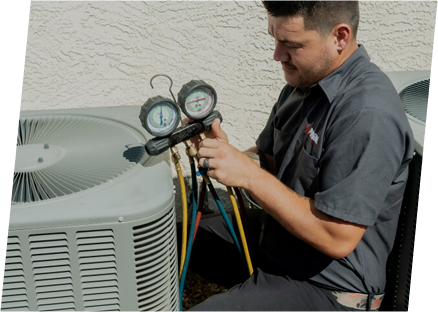
Clean the Condenser Coil
A well-maintained condenser coil is key to the efficient operation of your AC unit. The condenser coil, located in the outdoor unit, plays a vital role in releasing heat from your home. When it’s dirty, it can restrict airflow, forcing your AC unit to work harder and resulting in higher energy consumption. To maintain optimal performance, it’s crucial to regularly clean the condenser coil. You can use a garden hose or a brush and coil cleaner for this purpose. By ensuring your condenser coil is free from dirt and debris, you not only enhance your AC’s efficiency but also prolong its lifespan. This simple maintenance step goes a long way in maximizing energy efficiency and saving you money in the long run.

Check the Refrigerant Levels
Refrigerant is the lifeblood of your AC unit, responsible for absorbing heat and cooling your home. When the refrigerant level is low, your AC system won’t be able to efficiently deliver the cool air you need. To ensure optimal performance, it’s essential to have a professional technician check the refrigerant level regularly. They can identify any deficiencies and, if necessary, add more refrigerant to the system. Maintaining the correct refrigerant level is critical in preventing your AC unit from working harder than necessary, which can lead to increased energy consumption. This simple step not only maximizes energy efficiency but also helps keep your home comfortably cool during the scorching summer months.
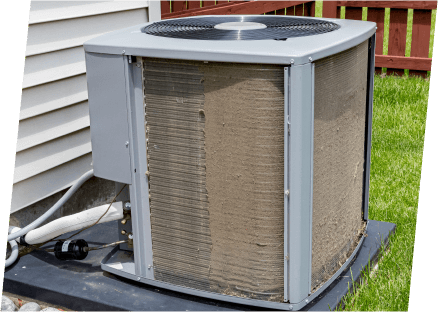
Consider Replacing Your AC Unit
As you strive to maximize energy efficiency, the age and efficiency of your air conditioning unit become crucial factors. If your unit is aging or inherently inefficient, it may be time to explore the advantages of an AC replacement.
Modern AC units are engineered with enhanced energy-efficient technologies, surpassing the performance of older models. When considering a new unit, look for a high SEER (Seasonal Energy Efficiency Ratio) rating. A higher SEER rating signifies improved energy efficiency and can translate into significant long-term savings on energy costs. Investing in a newer, energy-efficient HVAC unit not only keeps you cool but also contributes to a greener and more cost-effective approach to home cooling.
Maximizing Energy Efficiency for Your AC Unit
In the quest for a more energy-efficient home, your AC unit stands as a pivotal player. By following the practical tips provided in this article, you can harness the power of energy efficiency while enjoying a cooler, more comfortable living space. From routine maintenance to sealing gaps and considering a new, high-SEER AC unit, each step holds the potential to significantly reduce your energy consumption and lower your utility bills.
Maximizing energy efficiency isn’t just about saving money; it’s about reducing your environmental footprint and contributing to a more sustainable future. We encourage you to take these actionable steps and share your feedback or questions with us. Let’s embrace energy-efficient cooling and make a positive impact on both our wallets and the planet.
However, even the greatest air conditioning units have a lifespan. Knowing when it’s time to swap out your old AC unit can maintain your comfort, save you money, and help the planet.
This article will walk you through the signs that signal it’s time for an AC unit replacement, ensuring your home stays cool and your energy bills stay low.
How to Know If It’s Time to Get a New Air Conditioner
Is your AC unit in need of repairs yet again? If so, it just might be time to replace your air conditioner. As a homeowner, here are some telltale warning signs to look out for:

Lack of Cool Air
One of the most obvious signs is when your air conditioning fails to produce cold air despite proper settings. This could mean your unit is struggling, and you may need to replace it. It’s a clear indication that something within the cooling system is not working correctly, leading to inefficient cooling and increased energy bills.
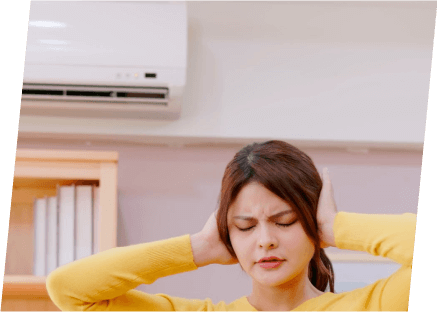
Strange Noises
Strange and loud noises coming from your AC system, such as banging or screeching sounds, are never a good sign. These noises often suggest internal mechanical issues. Immediate attention is required; otherwise, it might lead to a breakdown. In such cases, getting a new unit might be the best solution.

Frequent Repairs
Frequent AC repairs are a clear indication that your unit is nearing the end of its lifespan. While minor HVAC repairs are normal, if your unit requires constant fixing, it might be more cost-effective to replace it. Newer models are not only more energy-efficient but also come with improved technology, ensuring better performance and lower maintenance costs.

Inconsistent Temperature
If your AC is blowing warm air one minute and cold air the next — it’s a sign of a malfunctioning system. Inconsistent temperature indicates that the unit is not able to regulate the airflow properly, which can be frustrating and uncomfortable. This inconsistency can also strain the system, leading to further damage. Depending on the extent of the damage, you may need to replace your AC.
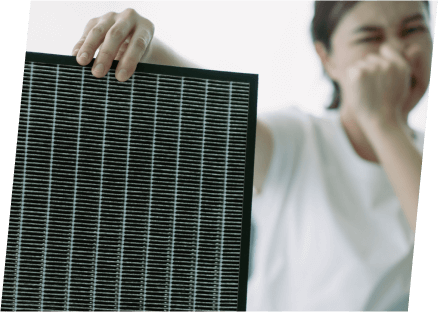
Unpleasant Odors
Foul smells coming from your air conditioning system indicate potential issues like mold and mildew or burnt wiring. These problems not only affect your indoor air quality but also pose health risks. Addressing these odors promptly is crucial. Depending on the severity of the problem, it might be more practical to replace the unit rather than pay to repair it, ensuring clean and fresh air in your home.
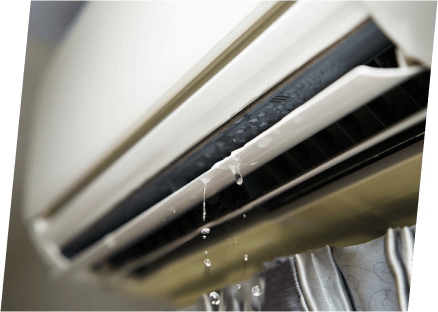
Drips and Leaks
If you notice water or refrigerant leaks around your AC unit, it’s a serious problem that needs immediate attention. Leaks can not only damage your unit but also your home, leading to costly air conditioning repairs. In some cases, especially if your unit is older, replacing it might be the most practical solution.

Unit is Old
Air conditioners are not designed to last forever. On average, a well-maintained AC unit with minimal repairs can provide reliable cooling for 10 to 15 years. If your unit is approaching or surpassing this age, it might be time to start thinking about a replacement. Older units tend to be less energy-efficient, meaning they consume more power to cool your home, leading to higher energy bills.
Make the Right Call to Replace Your AC Unit
Recognizing the signs that your air conditioner needs to be replaced is essential for your comfort and budget. Whether it’s a lack of cold air, strange noises, inconsistent temperatures, frequent repairs, or an aging unit, these indicators should not be ignored. Additionally, issues like leaking or unpleasant odors require immediate attention and may point toward the need for a replacement.
Remember, an efficiently functioning air conditioner is not just about comfort; it’s also about cost-effectiveness and the overall quality of life. So, keep an eye out for these signs, and when in doubt, contact a professional HVAC technician to make the best decision for your cooling needs.
However, even the most reliable AC units may encounter issues over time. Don’t let the looming uncertainty of your HVAC system’s condition steal the shade of your cool summer sanctuary.
In this comprehensive guide, we’ll explore warning signs indicating you need air conditioner repair and delve into different types of AC units.
Additionally, we’ll provide essential repair tips for each type, empowering you to keep your cooling system in top shape and enjoy a comfortable home all summer.
Types of Air Conditioners
The HVAC marketing industry has developed multiple ACs for different specific uses throughout the years. Below are the most common types that we will briefly explore:
Central Air Conditioning Systems
Central air conditioning systems are the most common cooling solutions for larger properties. They utilize a network of ducts to distribute cool air through the entire building.
Central ACs offer consistent cold air and are typically controlled by a thermostat, ensuring precise temperature adjustments.
 REPAIR TIPS
REPAIR TIPS
Central AC systems are complex, and their repair requires expertise. If your central AC exhibits issues such as warm air, unusual noises, or inconsistent cooling, it’s best to contact a qualified HVAC repair technician.
They will diagnose the problem, ranging from refrigerant leaks and compressor failures to faulty thermostats or clogged air filters.
Central Air Conditioning Systems
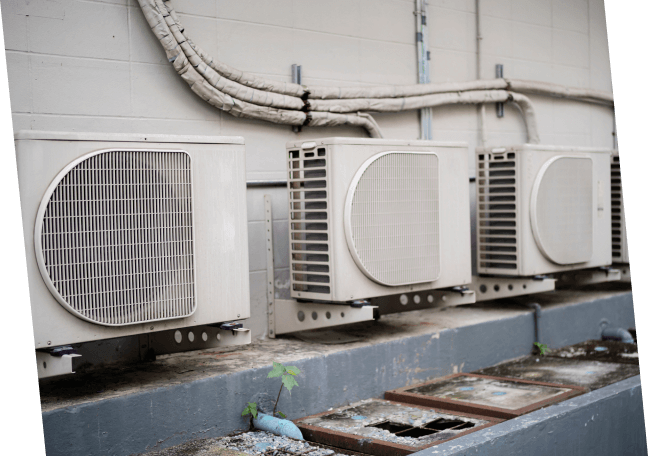
Split Air Conditioning Systems
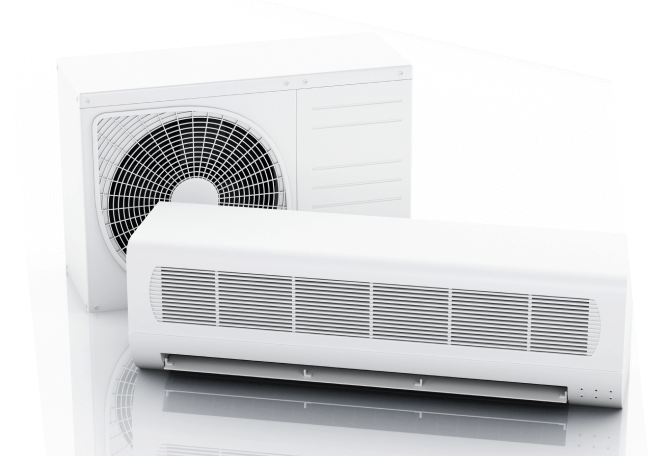
Split Air Conditioning Systems
Splhavesist of two main units: an indoor evaporator and an outdoor condenser. These systems are suitable for individual rooms or smaller areas. They provide efficient cooling and are often preferred for easy installation and flexibility.
 REPAIR TIPS
REPAIR TIPS
If your split AC is blowing warm air or making strange noises, check the air filters and ensure they are clean. Clogged air filters can hinder airflow and reduce cooling efficiency.
If the problem persists, it’s time to seek professional help. HVAC technicians can address issues like refrigerant leaks, faulty motors, or compressor problems.
Window Air Conditioners
Window AC units are designed to fit into a window or a dedicated hole in the wall. They are ideal for cooling individual rooms and cost-effective for smaller spaces. However, they may obstruct natural light and are unsuitable for cooling multiple rooms.
 REPAIR TIPS
REPAIR TIPS
For window AC units, the first step is to clean or replace the air filter regularly. Clogged filters can hamper cooling performance.
If your window AC is not cooling adequately, check for obstructions around the unit and ensure proper installation. If the problem persists, consult a professional technician to diagnose and fix any internal issues.
Window Air Conditioners
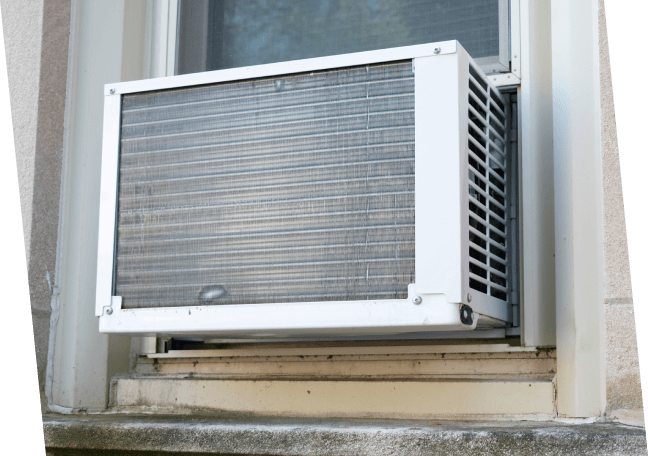
Portable Air Conditioners
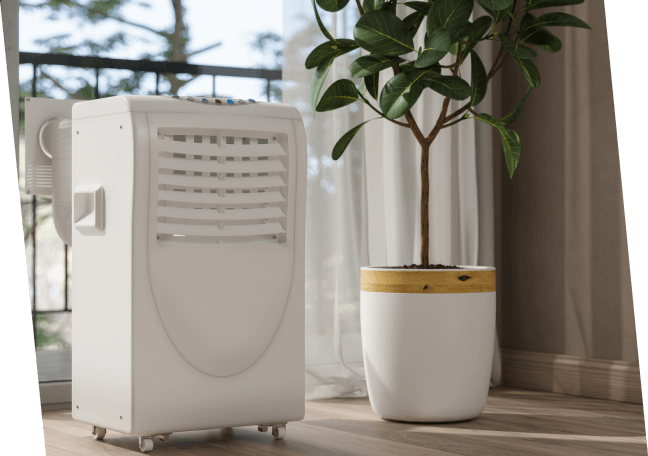
Portable Air Conditioners
Portable AC units are versatile and can be moved from one room to another as needed. They require an exhaust hose to vent hot air outside a window or wall. Portable ACs are popular for their mobility and ease of use.
 REPAIR TIPS
REPAIR TIPS
Portable ACs have relatively simple designs, and routine maintenance can resolve most issues. Ensure the exhaust hose is properly connected and vented to the outside.
Regularly clean the air filters and ensure there are no blockages hindering airflow. If your portable AC is not cooling effectively, professional technicians can assist with diagnosing and repairing any internal malfunctions.
Ductless Mini-Split Systems
Ductless mini-split systems are similar to split ACs but do not require ductwork. They consist of an outdoor condenser and one or more indoor air handlers, providing zoned cooling for different areas. Ductless systems are energy-efficient and allow for customized temperature control in each zone.
 REPAIR TIPS
REPAIR TIPS
If your ductless mini-split is experiencing issues like inadequate cooling or odd sounds, clean the air filters and check for any obstructions.
If the problem persists, it’s best to contact a professional technician. They can handle any refrigerant leaks, motor problems, or electrical issues that may be affecting your ductless mini-split’s performance.
Ductless Mini-Split Systems
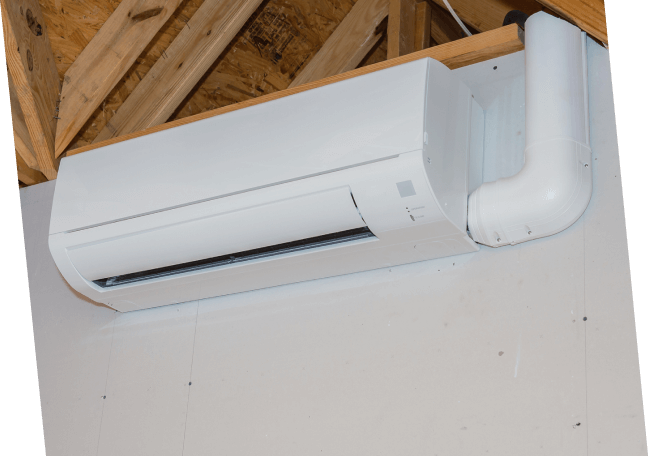
Warning Signs Your Air Conditioner Needs Repair
Now that we’ve covered the different types of AC units, let’s focus on the common signs that indicate you need an air conditioning repair.

Warm Air Instead of a Cooling Breeze
If your AC is blowing warm air instead of cool air, it clearly indicates an issue. This problem could be caused by low refrigerant levels, a malfunctioning compressor, or a faulty thermostat. Professional inspection and repair are essential to restore your AC’s cooling performance.

Unusual Noises During Operation
Strange noises like banging, grinding, or squealing while your AC is running may indicate mechanical problems. Loose parts, damaged components, or a failing motor can lead to these noises. Ignoring them can lead to further damage and more expensive repairs.

Frequent On-And-Off Cycling
If your air conditioner frequently turns on and off in short intervals, known as short cycling, it could be a sign of an underlying issue.
This problem may result from clogged air filters, an oversized AC unit, or a malfunctioning thermostat. Short cycling can waste energy and put unnecessary stress on your HVAC system.

Leaks or Moisture Around the AC Unit
Water pooling around your AC unit may indicate a refrigerant leak or a blocked drain pipe. Refrigerant leaks are harmful to the environment and require professional attention. Blocked drain pipes can lead to water damage and should be addressed promptly.

Reduced Airflow from Vents
Weak airflow from the vents could be due to clogged air filters, blocked ductwork, or a faulty blower motor. Reduced airflow affects your comfort and strains your AC system, potentially leading to further issues.

Inconsistent Cooling Throughout Your Home
If you notice inconsistent cooling in different areas of your home, it could be due to issues with your AC system’s ductwork. Leaks or gaps in the ducts can lead to conditioned air escaping before reaching the intended rooms.

Rising Energy Bills
A sudden increase in energy bills without any change in usage patterns may indicate that your HVAC is not running efficiently and you need AC repair ASAP.
An inefficient air conditioning system consumes more energy, leading to higher expenses. Timely repairs can help improve energy efficiency and lower your utility bills.

Thermostat Problems
A malfunctioning thermostat can cause your AC to behave erratically, leading to temperature fluctuations and discomfort. Professional attention is necessary to ensure accurate temperature control, whether it’s a faulty sensor or a calibration issue.
Determining the Need for AC Repair
Identifying whether your AC requires repair can save you from discomfort and costly breakdowns. Here’s how you can determine the need for AC repair:
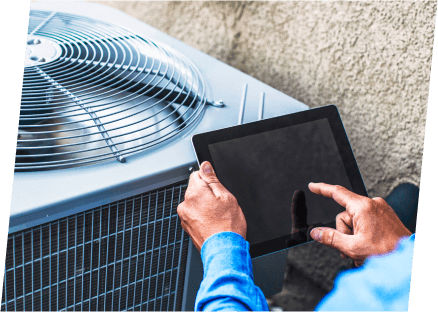
Conduct Regular Visual Inspections
Inspect your AC unit regularly for visible leaks, unusual noises, or physical damage. Pay attention to the condition of the ductwork and air filters.

Monitor Cooling Performance
Keep track of your AC’s cooling performance. If you notice a significant decline in cooling capacity or inconsistent temperature control, it’s time to seek professional repair services.
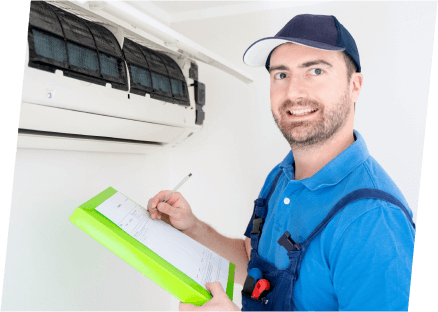
Schedule Professional Maintenance
Regular maintenance by a qualified HVAC technician is essential to keep your AC in optimal condition. A professional can detect potential problems early and address them before they escalate.

Check Energy Bills
Compare your current energy bills with those of previous months or years. If you observe a sudden and unexplained increase in energy expenses, your AC may run inefficiently.

Pay Attention to Unusual Odors
Foul or musty odors emanating from your AC may indicate mold or mildew growth. Ignoring these odors can lead to health issues and should prompt immediate attention.
Making Your Summer Cool
Your air conditioner is valuable for keeping your home cool and comfortable during the hot summer.
Understanding the different types of AC units and the warning signs of AC repair can help you maintain your cooling system and avoid unexpected breakdowns.
Regular inspections, professional maintenance, and prompt repairs ensure your AC runs efficiently and provides reliable cooling year after year


